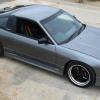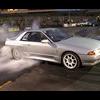More Boost More Power
Announcements
-
Similar Content
-
Latest Posts
-
I think for response I'm already kind of out there no? he -5s are not the best pick for that as the Internet tells me. Maybe I should switch to -7s while I still can? Though that almost definitely warrants an engine pull along with the other issues I have.
-
Which I agree with. I don't want or need a high hp straight line car, I want it to be fun on the road and nothing more. Hence why I said my max power goal will be around 500 crank. The few times I drove the car last year I didn't even use high boost and it was already quick enough for me, should have been around 380-400 crank I think (2860-5s at 1-1.1bar).
-
Ahh I see. I don't know, not all shocks are setup like that. Other than clearance it doesn't matter much because it is double wishbone, so ignore how it was and just out them in whichever way fits best
-
Aye, it has been pretty good since the shift ~ I just want access to the wiki ..again.. (now the mediawiki stuff has been updated), to get it all straightened out with consistent presentation (I talked to Session about it, turns out the mediawiki version was largely at fault..and pages created with older versions, etc etc)...I've basically given up asking, never get a reply...bit sad...but it is what it is.
-






Recommended Posts
Create an account or sign in to comment
You need to be a member in order to leave a comment
Create an account
Sign up for a new account in our community. It's easy!
Register a new accountSign in
Already have an account? Sign in here.
Sign In Now